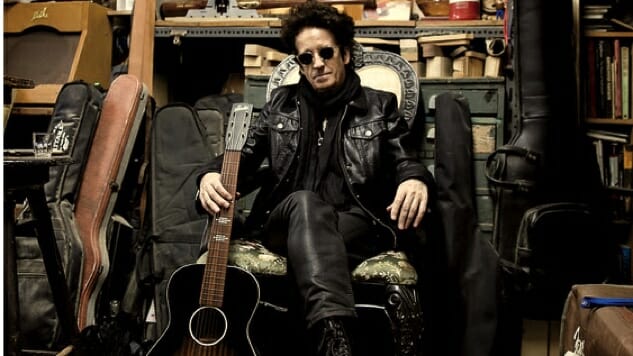Willie Nile: The Power of Protest
A new wave of politically charged music from Nile, Amos Lee, Marc Ribot and the Indigo Girls
Photo by Cristina Arrigoni
Pop and protest have always been fraternal twins. In the ’40s and ’50s, Woody Guthrie and Pete Seeger made music filtered through social conscience, using their particular brand of folk music as populist proverbs. For them, it served as a means of speaking out against injustice and indignity, despite being confronted by the objections of authority and banishment from the mainstream media. Bob Dylan, Joan Baez, Phil Ochs, and even the Smothers Brothers in sometimes subtle and subversive ways, carried the banner forward in the ’60s, singing songs that rallied against the Vietnam War and in support of civil rights.
In more recent times, Jackson Browne, Bruce Springsteen and U2 have taken to the soapbox to address and advocate for specific issues in an attempt to shift a certain mindset. Not surprisingly then, with the darkness that’s settled over the world overall, and the despair and disenfranchisement affecting the U.S. in particular, an increasing number of musicians are also feeling the need to speak out. The aim and intent is to address the politics and policies that have resulted in today’s ever-widening divide.
On his new album, Children of Paradise, Willie Nile adds his voice to the chorus of those alienated individuals, offering songs that speak specifically to the immigration imbroglio, the environmental crisis and the widening pall of intolerance that’s substituted discord for discourse, adding to the division that’s taken so many people to opposite extremes.
“I’m a true believer that music can change the world, whatever form it takes,” Nile insists. “In my case, it’s rock ’n’ roll. Music can lift our hearts. Music can you pick you up. I write all the time and it knocks the chip off my shoulder. I just refuse to let these fuckers kill my buzz. I just refuse.”
Then again, Nile has always made it a point to pursue his muse with passion, purpose and perseverance. At age 70, he’s still the rebellious rocker he was when he relocated to Greenwich Village in the early ’70s and first began hanging at such habitual haunts as CBGBs and Kenny’s Castaways, the counterculture clubs that launched the punk movement by nurturing bands like Blondie, the Ramones, Television and the Talking Heads. Nile took a different stance, writing angst-imbued, anthemic songs that brought quick comparisons to Dylan and Springsteen in particular, making him a rock ’n’ roll Everyman capable of stirring the senses and arousing the masses all at the same time.
Signed by Clive Davis to Arista Records, Nile released his eponymous debut in 1980. Unfortunately, due to protracted legal hassles, his progress stalled with the release of his sophomore set, Golden Down, the following year. The squabbles kept him off the road and out of the studio for an extended period of time. In 1988, he signed to Columbia Records and recorded his third album, Places I Have Never Been, featuring an array of all star cameos from Richard Thompson, Roger McGuinn, Louden Wainwright III, the Hooters and the Roches. Unfortunately, the title proved somewhat prophetic. A record company shake-up delayed the album another two years and by the time it was released in 1991, his career had suffered though yet another setback.
Fortunately, over the past decade or so, Nile has managed to return to fighting form, courtesy of a series of albums—2011’s double header The Innocent Ones and Streets of New York, American Ride in 2013 and World War Willie in 2016—that have reaped him the recognition that’s been so long overdue. Yet despite the belated kudos, he retains his insurgent stance, refusing to knuckle under to any powers that be.
“I’ve spent a lot of time in the record business with its ups and downs,” Nile insists. “There are always going to be ups and downs. That’s how life is, but it’s never gotten the best of me. I still love music, I still love being alive, I still feel that passion, and I refuse to let these people kill my buzz. We’ll all be gone at some point down the road, but while we’re here, whatever we can do, however small that may be, if we can help lift each other up, then by all means, I’m all for it.”
Indeed, Nile’s new album echoes that sentiment. With its cascading choruses, rousing refrains and cover photos of some of the homeless people that inhabit his neighborhood, Children of Paradise serves as his own call to arms. “The seeds of revolution are planted in my heart/ I water them with human tears every day we are apart,” he sings on “Seeds of Revolution,” the tugging heartfelt track that opens the album.
“Don’t,” the third song in, is even more pointed.
“Don’t let the fuckers kill your buzz/ Don’t let the fuckers turn you into suckers.”
-

-

-

-

-

-

-

-

-

-

-

-

-

-

-

-

-

-

-

-

-

-

-

-

-

-

-

-

-

-

-

-

-

-

-

-

-

-

-

-








































